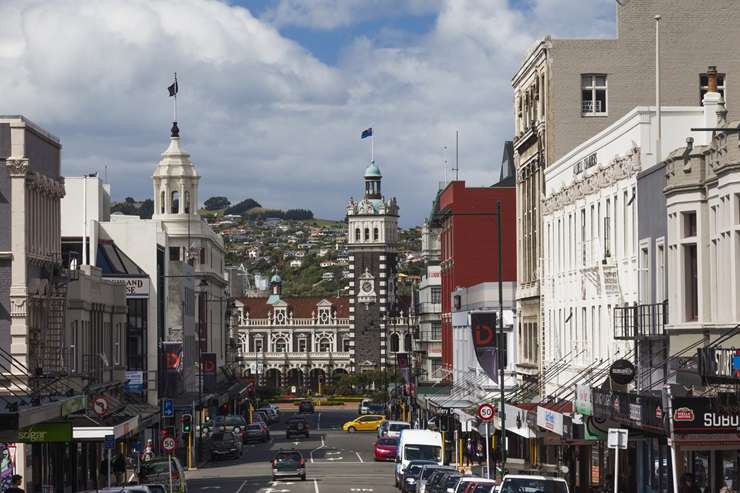- New listings in January rose 17% year-on-year, with strong growth outside Auckland.
- NZ’s average property value increased 1.1% to $969,000, with the strongest growth in West Coast and Auckland.
- Buyer activity remains high due to lower interest rates, boosting confidence and competition in the market.
New Zealand’s housing market started 2025 on a strong footing, with the number of homeowners deciding to list in January up year-on-year and the cost of an average home rising for the third consecutive month.
Start your property search
The latest figures from the OneRoof-Valocity House Value Index show the nationwide average property value climbed 1.1% ($11,000) to $969,000 in the three months to the end of January.
Growth was strongest at the top and bottom of the market, as buyers capitalized on cheaper home loans and brought forward their purchase plans.
The average property value in West Coast, the country’s cheapest region, rose by 2.2% ($11,000) to $486,000 in the last three months, while Auckland’s average property value grew 2% ($26,000) to $1.307 million over the same period.
The number of new properties coming to market in January was 17% higher than a year earlier, with much of the lift coming from outside Auckland. New listings were up 20% year-on-year in Canterbury, and 18% in Wellington over the same period.
OneRoof editor Owen Vaughan said vendor confidence appeared to be growing, despite the number of homes available for sale nationwide reaching record levels. “It remains to be seen if listings growth in January – traditionally the housing market’s quietest month – turns into a tsunami in February, as happened last year,” he said.

OneRoof editor Owen Vaughan: "Buyers are chasing affordable homes and seem more comfortable making offers now that interest rates have fallen." Photo / Fiona Goodall
Anecdotal evidence points to more approaches for agent appraisals than is typical at the start of the real estate year, while agents running open homes in January have been surprised by the number of first-time buyers in the market.
More listings and more competition among sellers could put the brakes on value growth, but unlike last year, buyers are not holding fire, Vaughan said.
“Buyers are chasing affordable homes and seem more comfortable making offers now that interest rates have fallen and could fall more steeply this year after inflation held steady at 2.2% in the last quarter of 2024,” he said.
The OneRoof-Valocity House Value Index figures showed quarterly value falls in just three regions – Marlborough, Otago, and Tasman – although it is too early to tell if the drips reflect weaknesses in their markets or are a seasonal blip.
For example, Otago’s 1.3% value fall follows a near 12-month-long run of climbing prices in the region, which are still $13,000 above their post-Covid market peak in 2022.
Southland’s average property value, up 0.5% over the last three months to $554,000, has also exceeded its post-Covid peak, while Canterbury is only $10,000 away from reaching its own record of $798,000.
Prices continued to climb in most of the cities and towns, with Otago’s Dunedin and Queenstown-Lakes the only major centres to suffer value slides since November.
Wellington City and Hamilton were the country’s strongest metropolitan markets, recording value growth of more than 2% in the last three months. In Auckland, the biggest value lift was in Rodney district, up 3.3% ($46,000) to $1.437m.

Dunedin's average property value has eased in the last three months. Photo / Getty Images
Property values rose in nearly two-thirds of the country’s suburbs in the last three months, with the biggest increases in Ahuriri, in Napier (+8.1% to $1.107m); Runanga, in Grey (+7.6% to $324,000); and Coatesville (+7.1% to $3.62m).
Year-on-year, the biggest value increases were in the West Coast suburbs of Blaketown (+21.2% to $354,000); Runanga (+20% to $324,000); and Cobden (+15.7% to $332,000).
The analysis also identified 20 suburbs where prices reached new heights, and another 154 suburbs where prices are close to hitting their post-Covid peaks.
Most of the suburbs setting new value records were in West Coast, Southland and Otago, and at the affordable end of the market. However, benefiting from strong buyer action over spring and summer were two neighbouring beach suburbs at the upper end of the market.
The average property value in Omaha, in Auckland’s Rodney district, jumped $150,000 to a new high of $2.902m, while Point Wells saw its average property value rise $149,000 to $2.486m.
- Click here to find properties for sale






















































































